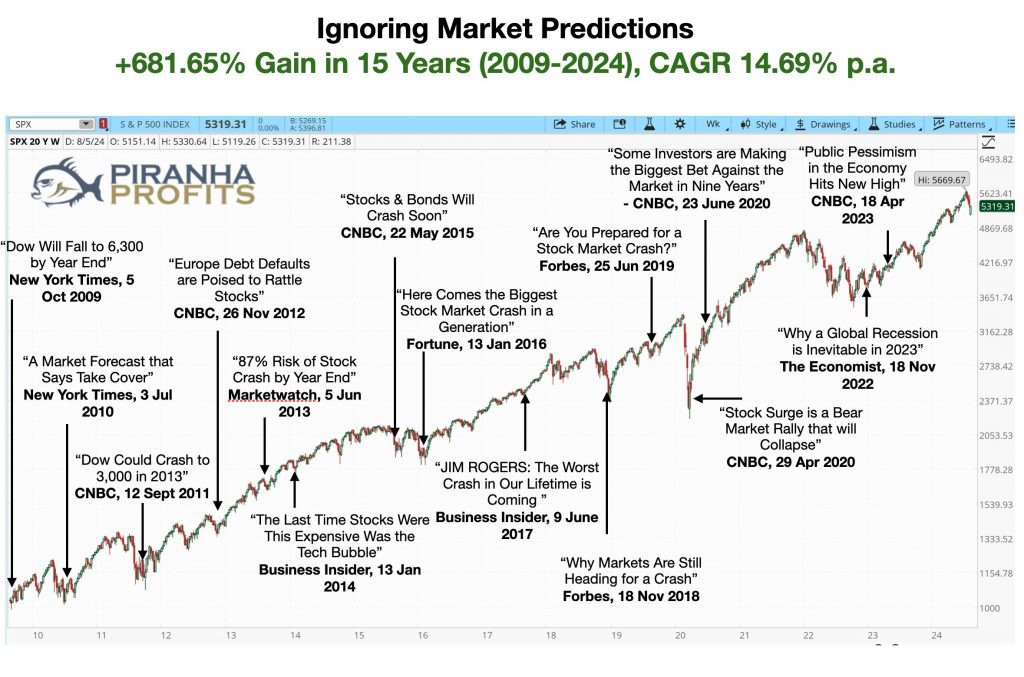The Power of Ignoring Market Predictions
One of the most valuable lessons for investors is learning to ignore market predictions. Over the last 15 years, the US market has achieved a remarkable compound annual growth rate (CAGR) of 14.69%. This growth has happened despite countless predictions of market crashes and economic doom. From the 2008 crisis onward, there have been numerous headlines predicting catastrophic losses, yet the market has continued to rise. The key takeaway here is that market predictions often fail, and trying to time the market based on these predictions is usually a losing game.

Predictions Rarely Hold Up
If someone were to compile all the dire predictions made over the past decade and a half, they would find that nearly 99% of them never came true. Headlines warning of stock market crashes, recessions, and economic downturns have been a constant presence, yet the market has proven resilient. This highlights the limited value of predictions in the financial markets. Instead of worrying about what might happen based on speculative forecasts, it’s often better to focus on the long-term growth potential of the market.
The Problem with Constant Predictions
Financial news channels and publications are filled with predictions, whether it’s on a five-minute basis, hourly, daily, or weekly. Analysts and experts are always making predictions about which sector will go up or down, where interest rates are headed, or what the market will do next. However, these predictions are made without accountability. When there is no responsibility for the outcomes of these forecasts, they become little more than noise. The problem is that many investors get caught up in this noise, making decisions based on incomplete or incorrect information.
The Incomplete Advice of Market Experts
When market experts appear on television or social media, they often recommend specific stocks or sectors without providing the full picture. They might say they like a particular stock, but they don’t tell you when to buy, how much to allocate, or when to exit. This incomplete advice is of little value to investors. For a recommendation to be truly useful, it needs to be part of a complete strategy, including entry and exit points, as well as guidance on how much of your portfolio to allocate to that investment.
A complete investment strategy involves more than just picking stocks. It requires a well-thought-out plan that includes how much to invest, when to buy, and when to sell. Unfortunately, many market experts don’t provide this level of detail. They simply make predictions without offering a complete roadmap. This can lead to poor decision-making by investors who rely on these partial recommendations. A sound investment strategy should include clear guidelines on all aspects of the investment process, ensuring that investors are fully informed and prepared.
Avoiding the Noise for Better Results
Many investors miss out on potential gains because they get caught up in the noise of the market. They react to every prediction and piece of news, making decisions based on emotion rather than logic. However, those who can ignore the noise and focus on a long-term strategy often find greater success. By avoiding the distractions of constant market predictions and focusing on a well-rounded investment approach, investors can achieve better results over time.

Disclaimers and disclosures : https://tinyurl.com/2763eyaz
If you have any questions, please write to support@weekendinvesting.com












